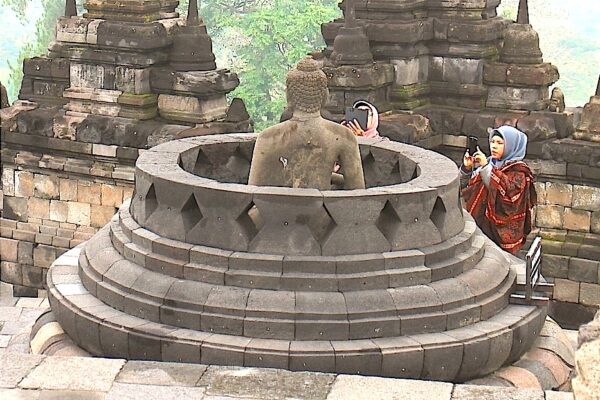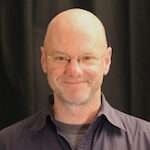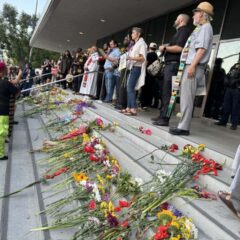This post also appeared on Huffington Post Religion.
“If Islam is a religion of peace, why are people so violent?”
That rhetorical question brought me up short. I wasn’t watching Pamela Geller’s latest piece of Islamophobic stagecraft or listening to a stump speech from a UK Independence Party candidate.
I was talking to Evan, a 26-year-old student in Yogyakarta, a peaceful, Muslim-dominated university town in Indonesia.
“People who say that what extremists are doing isn’t Islamic are just cherry-picking what they like,” said Evan, who was raised in a “not very religious” Muslim family and now identifies himself as atheist. “I’ve read the whole Quran, and it’s just not for me.”
Evan—who asked to be identified by a pseudonym—is part of a small but growing network of atheists in Indonesia, the world’s largest Muslim-majority country. About 70 members of the group live near Yogyakarta, and about 1,500 more are connected through a private Facebook account based in Singapore.
That caution is understandable. Though Indonesia is officially pluralistic, belief in God is enshrined in its constitution, and at least one prominent nonbeliever has been prosecuted under the country’s blasphemy law.
Meeting Evan, along with several other religiously disaffiliated young people in Yogyakarta, has been on my mind because of a recent piece in The Guardian about suffering and alienation among Muslim atheists in Britain. For me, the most striking feature of this angle on Muslims who question their faith is its tight focus on a handful of stories that conform to one of the dominant Western narratives about Islam—that its adherents are either the mindless purveyors or the helpless victims of a form of violence coded into the DNA of their tradition. The most common example of this fun-house mirror distortion of Islam is the casting of violent fringe groups as mainstream Muslims.
The pervasiveness of such distortions explains how Evan—a media-saturated Millennial sitting in a café at the heart of a vibrant city in a young, relatively stable Muslim democracy—could wonder why Muslims are so violent.
A few of the young men and women I met in Yogyakarta said they had experienced ostracism and even threats as a consequence of their questioning the faith. But the common and far more compelling element threading through all of their stories was the fierce drive to examine the systems of belief that have shaped them. This intense self-scrutiny has led some of them to walk away from belief altogether, while others are reimagining their identities as Muslims in ways that are radically different from the beliefs and practices of their family members and more religiously traditional Muslim peers.
In addition to Evan, I also met Aditya—Adit, for short—while I was in Yogyakarta. Adit, 23, was raised Muslim, like his father, though his mother is Christian. His first step on the road to unbelief was questioning the concepts of heaven and hell when he was a teenager. In his father’s family’s version of Islam, his mother would have to convert if she wanted to avoid damnation.
“At one point I was afraid to question any further,” Adit said. “I still had a problem with it, but I was afraid of going to hell!”
Like Evan, Adit has found a community of like-minded former Muslims through the atheist Facebook group. But his process of spiritual questioning has also led him to study Buddhist meditation as well as the writing of Maajid Nawaz, Ayaan Hirsi Ali and Irshad Manji—figures whom he described as “Muslim reformers.”
“I admire her works,” Adit said of Hirsi Ali, the most controversial of the three writers he mentioned. “But she’s trying to be too critical.”
Adit likened the harshness of some of Hirsi Ali’s writing to the work of Sam Harris and other “New Atheists.”
“It’s not helpful to be that arrogant,” Adit said. “That primordial mentality is one of the reasons I started to dislike organized religion in general—if you’re not with us, you’re against us.”
Then there were my favorites: 21-year-olds Silvia and Rizka. The women, both wearing the hijab, met on their university’s debating team. They said that members of the team routinely challenge one another to justify their religious and political beliefs.
“There’s a lot of questioning of your religion,” Silvia said. “Why do you believe this or that? Why don’t you take off your hijab? People challenge you to say what you think is right.”
For Silvia, the intellectual rough-and-tumble of the debating team is a crucible in which her faith has been tested and strengthened. She said that her beliefs are now different from those of her conservative parents—exposure to diverse ideas, particularly about LGBT rights, has set her on a different path—but the Islam that she practices has become a more deeply integrated part of her identity.
“I realized it wasn’t good to believe just to believe,” she said. “You have to question in order to grow to be more than you are.”
On the other hand, the critical self-examination encouraged by the culture of the debating team has led Rizka away from her faith.
“I’m not a devout anything,” she said. Gesturing to her hijab, she added, “This is a hand-me-down from my parents. It’s an economic calculation”—that is, as long as she is financially dependent on her family, she will do what they expect of her. “After I graduate and get a job,” she added, “we’ll see.”
Young adult Muslims who are questioning their faith are finding a variety of ways to navigate those frequently turbulent existential waters. Some form groups, such as the Women’s Mosque or Totally Radical Muslims, that seek to reclaim the liberating spirit of the faith for people who have felt marginalized in traditional Muslim communities as well as non-Muslim cultures. Others are creating new associations around a shared identity as nonbelieving former Muslims. All of these movements encourage the same kind of deep, often critical introspection that I found among the students I met in Yogyakarta. And whether overtly or covertly, they exist everywhere. No story about the edges of Islamic affiliation is complete without them.
Nick Street was a senior writer with the USC Center for Religion and Civic Culture.





